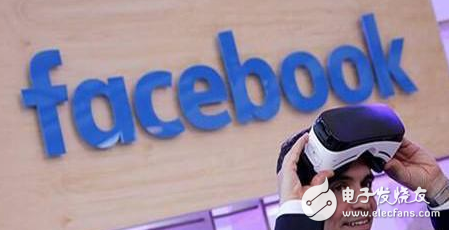A few years ago, Facebook was always focused on software products, so when they wanted to build a true Facebook virtual department, hardware became their biggest obstacle. At present, they are committed to transformation, claiming that success must be hardware and software together, and the rapid introduction of hardware products is the hope of success. The latest stand-alone virtual reality helmet isn't as powerful as a PC or game controller, and the company's original Oculus Rift helmet is beginning to show an outdated feel. John Sa believes that in order for Facebook's virtual reality department to succeed, it needs to accelerate the introduction of hardware products, not just software products.
A few years ago, Facebook CEO Mark Zuckerberg once claimed that in the long run, Facebook is unlikely to become an important virtual reality hardware manufacturer, but more likely to become a popular virtual reality. Software platform and bring an immersive social experience. Zuckerberg said in an interview with the media in 2016, "We mainly focus on software, but in the process of developing any new platform, you really need to do both hardware and software."

Of course, one should not condemn Facebook's Oculus VR department for ignoring the hardware business, as evidenced by Facebook's launch of an independent virtual reality helmet at the Oculus Connect conference on October 11 this year. However, the facts seem to indicate that Facebook is not paying much attention to what virtual reality helmets can do, but rather to paying more attention to launching low-priced products. Given the current state of the virtual reality market, Facebook's approach may be a mistake.
At this year's Oculus Connect conference, Facebook showed off the $199 Oculus Go headset, which doesn't need to be paired with any other device. In comparison, Facebook's Oculus Rift launched in 2016 will need to be connected to a PC, which is very similar to HTC's Vive headset and the recent Microsoft Windows Mixed Reality platform. Sony's PlayStaTIon VR headset, as its name suggests, can only be used with the PlayStaTIon 4 console. In addition, Samsung's Gear VR headset is equipped with Oculus software, which is also used in conjunction with Samsung's high-end smartphones to provide display and power to the device.
But there are some facts that cannot be ignored. One of them is that Oculus Go is similar to Gear VR, but unlike PC and gaming headsets, this device is not equipped with any peripheral sensors that track user activity in the room. This greatly reduces its own functionality, which makes the device more like a replacement for a headset that works with a smartphone, rather than acting as a more powerful competing product.
In addition, although most virtual reality headsets have relied on OLED displays so far, this is mainly due to the fact that OLED displays can reduce motion blur. Overall, Facebook seems to prefer to use its own built-in display technology to reduce costs. However, Rift is now equipped with two advanced motion controllers, while the Oculus Go is also equipped with a relatively simple controller.
Facebook is preparing to launch a more powerful stand-alone virtual reality headset called Santa Cruz. Unlike the Oculus Go, the device will be equipped with built-in sensors to track user actions, and will be equipped with a pair of advanced controllers, allegedly also equipped with Qualcomm's Snapdragon 835 SoC processor, which already has Appeared in this year's high-end Android phones, and also optimized for virtual reality headsets.
Of course, if consumers want to be able to buy such equipment, they may need to wait for a while. So far, Facebook has only announced that the company will only provide such devices to developers at some point next year. At the same time, Google (microblogging) has been working with HTC and Lenovo to launch stand-alone headsets with Snapdragon 835 chips and internal and external tracking capabilities, and Google has promised that they will soon launch such products. There is no doubt that if Facebook wants to achieve greater achievements in the field of virtual reality, of course, it must also increase the research and development of related hardware products, and intensify the introduction of such hardware products.
Other household electric appliance
gree , https://www.greegroups.com